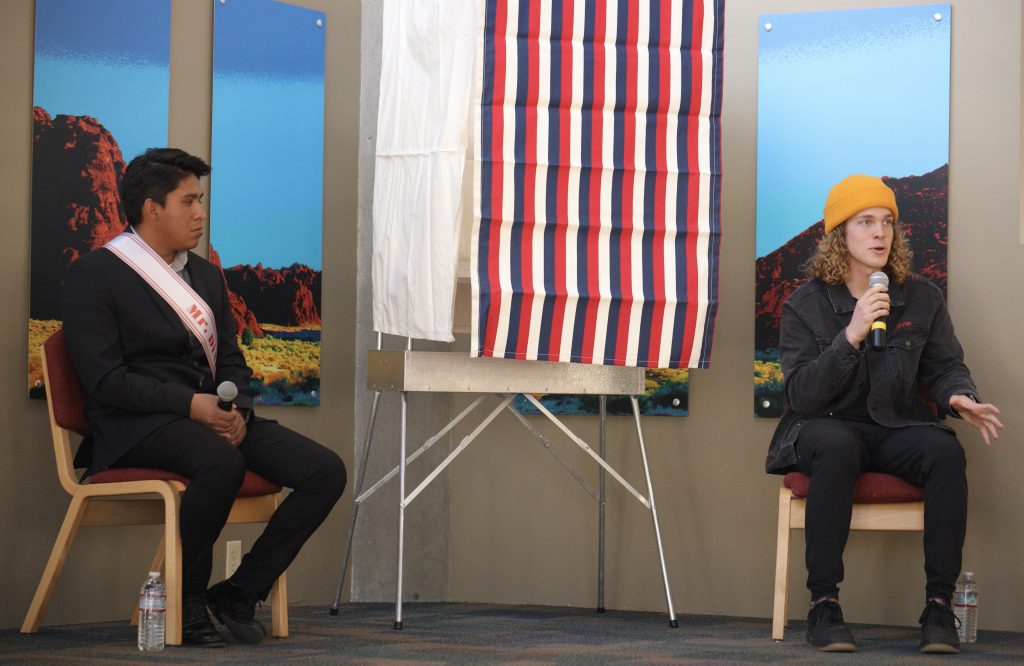As Utah Tech University prepares for the 2025-26 school year, the Student Advisory Board held the Truth in Tuition event March 4 to propose the allocation of student fees.
The Student Advisory Board is chaired by Bella Estes, student body president and a senior communication studies major from Scottsdale, Arizona. The board is comprised of students and has no voting faculty members on the board.
“There are members of the board that are faculty and staff that sit and advise and help answer all of our questions but at the end of the day, when it comes to a vote, it’s 100% by students,” Estes said. “It’s important that it’s coming from 100% from what students want. It’s also our way of taxing, which helps gain money as all members of UTSA know. It helps make things more affordable in an interesting way.”
Administration at Utah Tech has made it a goal to make tuition affordable for students, and it is currently the third-most affordable university in Utah for full-time resident tuition per semester, behind Snow College and Salt Lake Community College.
“That’s right where we want to be, delivering solid value to students,” said Bryant Flake, executive director of planning and budgeting.
Following a 2.9% tuition increase in 2024, the Student Advisory Board proposed a 2.4% increase for tuition going into the 2025 fall semester. This will cause tuition to increase by $65 for residents and $208 for nonresidents.

Comparison of 2024 student fees and proposed fees for 2025. Photo courtesy Curtis Keddington.
Along with the proposed tuition change is the allocation of student fees across campus. In comparison to last year, many of the proposed fees are not changing or have minimal financial impact. The athletics fee is being reduced by 50 cents while the fees for student buildings and Booth Wellness Center all have zero fee changes.
While many of the proposed changes are minimal for the aforementioned categories, the advisory board proposed a new student resource fee. This would be to help assist programs such as the Blazer Pantry, The Disability Resource Center, Veterans and Military Services and the International Student and Scholars Office.
The Blazer Pantry was a key factor in the creation of the student resource fee as there has been a 56% increase in the usage of the pantry within the last year, and the school hopes to hire a full-time case manager for the program.
The Utah Tech Student Association fee will be increasing by $4 and another increase is for the Student Union Building on campus, which will increase by $22. The building will aim to offer more food options on campus and space for organizations.
Along with the new Student Union Building, a proposal was made to move the Booth Wellness Center from its current location to the 4th floor of the Holland building.
“A couple different departments on campus might move to the 4th floor of the Holland building,” Estes said. “The Booth Wellness Center is one of those departments but is one that there is still conversations about.”
In addition to the fee changes for the previously mentioned programs, a couple of fees were completely cut. The Institute of Politics along with the student inclusion fee were proposed to be removed.
As the board seeks approval on its financial proposal for the coming year, it has to go through several steps. The Utah Tech board of trustees must approve the proposal March 7 before it is reviewed by the Utah Board of Higher Education March 27-28.


